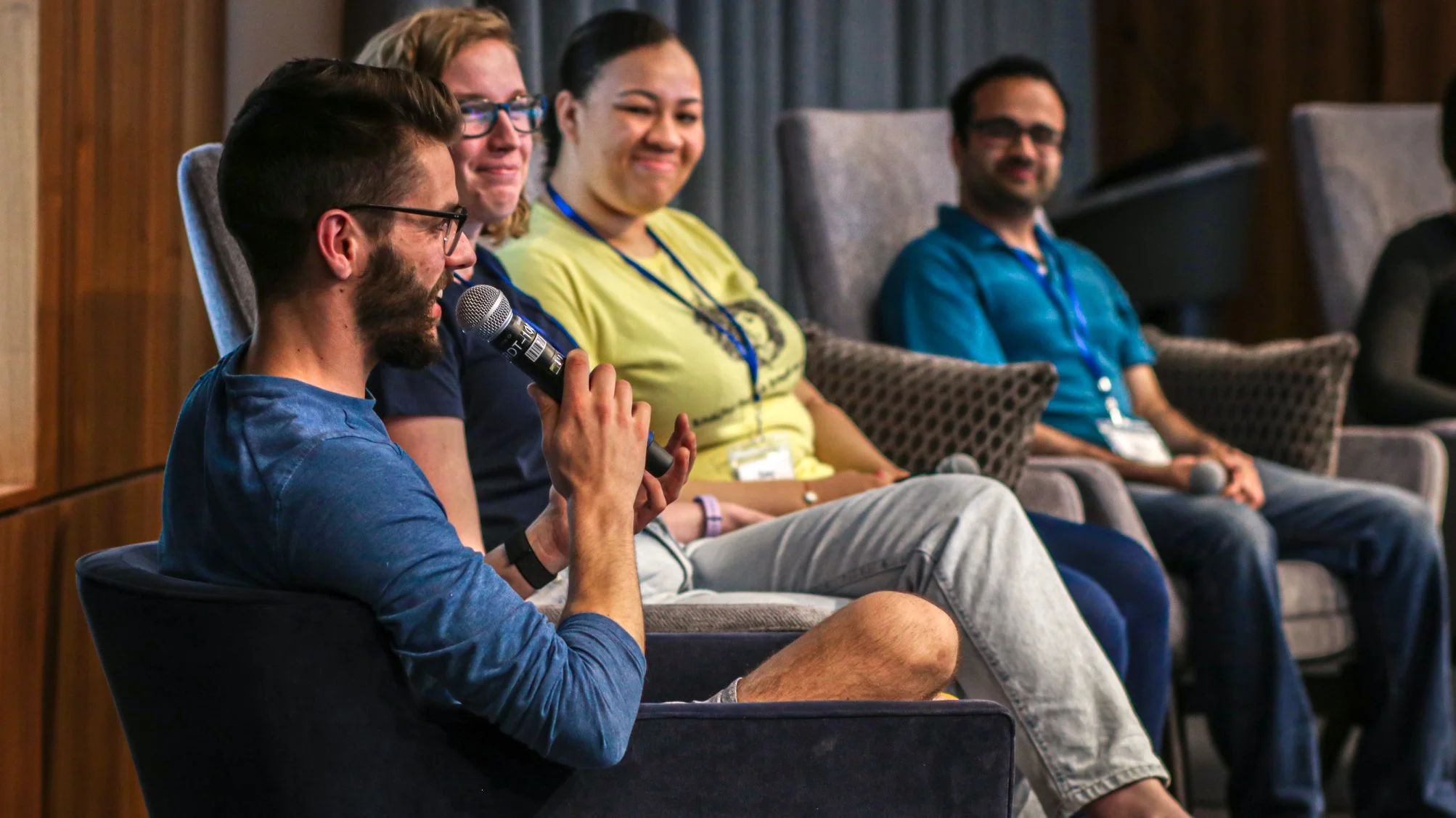Welcome to your new favorite class.
-
1 credit minicourse
How often do you see problems in the world and think, “someone needs to do something about that” This course gives you an opportunity to ask, “why not me? The Critical Issues minicourses feature expert speakers from campus and beyond, with each speaker introducing a pressing issue facing society and challenging students to design creative solutions.
Topics:
Critical Issues in Climate Solutions
Critical Issues in Education
These courses are uniquely student-led with guest speakers join weekly to discuss important trends and innovations.
-
3 credits
"Stewarding Technological Futures" is an interdisciplinary course designed to empower students to critically evaluate emerging technologies and assume the role of ethical innovators and community leaders. Through a blend of lectures, interactive labs, and collaborative projects, the course challenges students to examine how emergent technologies intersect with social equity, ethical design, and systemic change. Students will explore foundational theories—such as surveillance capitalism, algorithmic bias, and the socio-cultural dynamics shaping technology—while developing actionable strategies to promote responsible tech innovation.
The course is structured around key themes, including historical context and systemic disparities, ethical innovation, and the integration of cultural perspectives in technology development. By engaging in critical case studies, reflective exercises, and hands-on prototyping, students will cultivate the skills necessary to steward technology for the public good. They will learn to connect technical expertise with ethical decision-making, design inclusive interventions, and foster dialogues among diverse stakeholders.
This course fulfills the Ideation requirement for the U-M Entrepreneurship Minor.
-
3 credits
This course introduces students to the core principles of social innovation methodology, applying creative, iterative problem-solving to address complex social challenges. Grounded in human-centered design and systems thinking, this course equips students with the critical thinking skills and practical tools needed to develop, test, and refine impactful solutions.
This course fulfills the Ideation requirement for the U-M Entrepreneurship Minor.
-
3 credits
This course is for scholars who want to do more than just innovate—they want to center cultural wealth within community. They will explore how to become responsible stewards, exemplifying how sociocultural influences and sociotechnical systems can merge to serve minoritized communities more equitably. Instead of designing for users who are being used, they will prioritize designing within the community, understanding that we share a profound responsibility to uplift each other. By embracing a simple but powerful mantra, "pause, reflect, protect," they will begin to slow down, assess risk, and respect both people and the planet before we act. Upholding values of connection, embracement, and collaboration pushes beyond the crude mechanism of capitalism to consider whole ecosystems, non-human life, and the reciprocal relationships that create a healthy world to lead transformative change.
This course fulfills the Elective requirement for the U-M Entrepreneurship Minor.
-
2 credits
This course is a requirement for all students enrolled in the BSP living-learning community.
Through active engagement, students will grow academic and professional skills and enhance their sense of belonging in the BSP community through learning about and applying human-centered design strategies to social innovation challenges.



